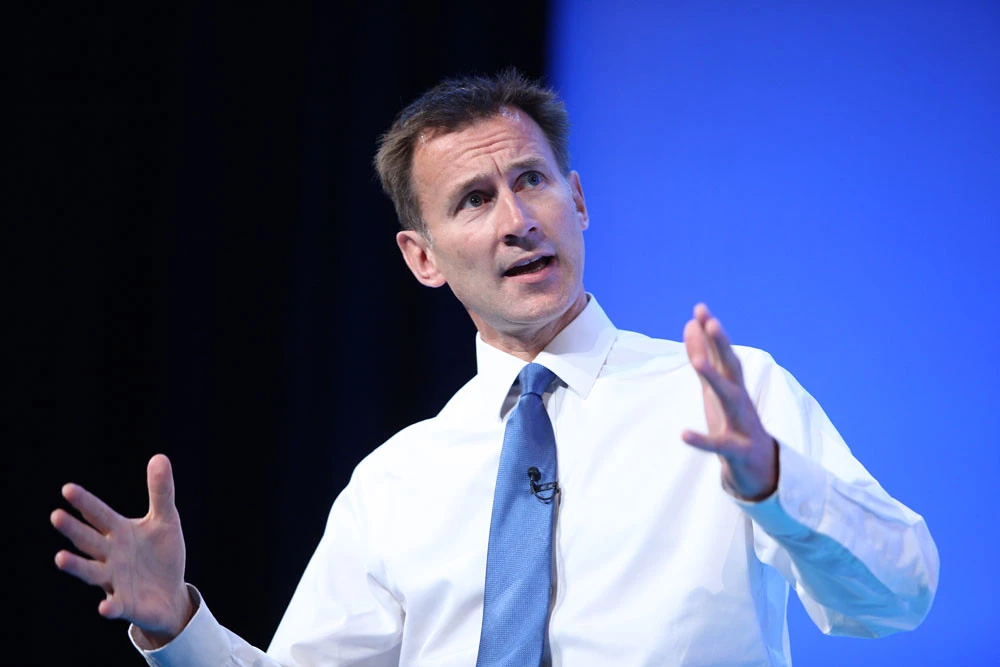
The business community reacts to national living wage rise
The Chancellor of the Exchequer, Jeremy Hunt used his Conservative Party speech as an opportunity to announce plans to increase the national living wage to at least £11 an hour.
Jeremy Hunt stated, “We promised in our manifesto to raise the National Living Wage to two thirds of median income, ending low pay in this country. At the moment it is £10.42 an hour and we’re waiting for the Low Pay Commission to tell us next year’s recommendation.
“But I confirm today, whatever that recommendation, we will increase the National Living Wage to at least £11 an hour next year. That’s a pay rise for 2 million workers.”
The announcement has sparked a range of emotions within the business community.
Sarah Coles, head of personal finance of Hargreaves Lansdown: “Tax is set to swallow almost a third of the minimum wage rise, which could turn a pay rise into an effective pay cut.
“Jeremy Hunt announced a rise in the minimum wage – the tastier component in his carrot and stick combination to convert benefits claimants into employees. But while it sounds like it could be an inflation-busting rise, once you take tax into consideration, it’s far less notable.
“If you work 37 hours a week, it means an effective pay rise of £1,116, of which almost a third will disappear in tax. Your take home pay would be £18,414 - up from £17,655, which means it would have risen 4.3 per cent. This could push the wage rise back below the inflation rate. It demonstrates the devastating impact of the frozen income tax thresholds on our incomes.”
Michael Kill, CEO of the Night Time Industries Association believes the pay rise will be detrimental to the night-time economy:“We’re deeply disappointed by the Chancellor’s announcement on the National Living Wage increase, and we see it as a token gesture that’s timed at our industry’s expense. It’s nothing short of a slap in the face for our already struggling businesses.”
“The night-time economy has been battered by the pandemic, with our venues facing closures, restrictions, and crippling financial losses. Now, just as we’re trying to get back on our feet, the Chancellor decides to unload the burden of a wage increase squarely onto the shoulders of operators.”
Victoria Short, CEO of recruiter Randstad UK was less sceptical adding: “The doom-mongers shouldn’t be too cautious, too quickly. I think this will work. It’s worked before. Back in 2015, Germany introduced a minimum wage. The policy led to a 6.7 per cent increase in wages for workers who had previously been paid below the minimum, reducing inequality.
“Researchers at Nuremberg’s Institute for Employment Research and UCL found that this came without any substantial effect on either unemployment or the employment rate.
“Closer to home, in 2016, George Osborne announced the minimum wage for over-25s would accelerate sharply to reach 60 per cent of median hourly pay by 2020. His decision was also linked to his determination to cut welfare spending. It successfully raised pay without causing high unemployment.
“This should help alleviate some of the problems caused by the cost of living crisis, and could re-energise a workforce that, in some cases, can’t afford to work.”
By Mark Adair – Correspondent, Bdaily
- Add me on LinkedIn and Twitter to keep up to date
- And follow Bdaily on Facebook, Twitter and LinkedIn
- Submit press releases to editor@bdaily.co.uk for consideration.
Looking to promote your product/service to SME businesses in your region? Find out how Bdaily can help →
Enjoy the read? Get Bdaily delivered.
Sign up to receive our popular morning National email for free.




 test article 123456789
test article 123456789
 hmcmh89cg45mh98-cg45hm89-
hmcmh89cg45mh98-cg45hm89-
 test456456456456456456
test456456456456456456
 test123123123123123123
test123123123123123123
 test xxxdiosphfjpodskhfiuodsh
test xxxdiosphfjpodskhfiuodsh
 Savour the flavour: North Tyneside Restaurant Week returns for 2024
Savour the flavour: North Tyneside Restaurant Week returns for 2024
 Six steps to finding the right buyer for your business
Six steps to finding the right buyer for your business
 Stephen signs off on a special night
Stephen signs off on a special night
 Life’s a Peachaus: Gillian Ridley Whittle
Life’s a Peachaus: Gillian Ridley Whittle
 Making a splash: Phil Groom
Making a splash: Phil Groom
 Making workplace wellbeing a priority
Making workplace wellbeing a priority
 A record of delivery, a promise of more: Ben Houchen
A record of delivery, a promise of more: Ben Houchen